|
Rights, Freedoms and Repression
Blog Feeds
Anti-Empire
Human Rights in IrelandIndymedia Ireland is a volunteer-run non-commercial open publishing website for local and international news, opinion & analysis, press releases and events. Its main objective is to enable the public to participate in reporting and analysis of the news and other important events and aspects of our daily lives and thereby give a voice to people.
Lockdown Skeptics
Voltaire NetworkVoltaire, international edition
|
Cuba: what will happen when Fidel is gone? international |
rights, freedoms and repression |
feature international |
rights, freedoms and repression |
feature
 Wednesday August 02, 2006 19:34 Wednesday August 02, 2006 19:34 by IMC Éire foreign correspondent by IMC Éire foreign correspondent

Some thoughts on Cuba. So it seems as if Cuba could be in for a rough ride over the next few months, if some of the speculation about Fidel Castro being already dead is to be believed. Even if the surprisingly robust leader is genuinely only in hospital for minor surgery - if any surgery for someone at the age of 80 can be described as 'minor' - the world has got a glimpse of what is going to happen (most notably in Miami) when nature eventually takes its course and Castro passes on. I visited Cuba around 12 months ago. I had some reservations about going. I guess others would call me left wing but I was in no way steadfastly supportive of the communist setup. When we arrived, as soon as we got into a taxi from the airport (which was in itself a bureaucratic nightmare hangover from the iron curtain era), we realised that our near total lack of Spanish was going to be a massive handicap. As time went on, we were able to converse with the basics, and our confidence grew, but ultimately we found it hard to progress beyond simple concepts. I would have liked to have talked to people about politics, their expectations, etc. The language barrier prevented this. We met two Spaniards in Maria La Gorda, whose English was OK. We passed by several political "advertisements" on the road. I asked them if they had talked to the locals about the political situation. They told me that Cuban people did not like the government or the roadside hoardings; if you talked to them for a while, they would eventually open up. The murals were not painted by local people in the community, as per Northern Ireland or in the Basque country, but instead by the state. I wasn't totally convinced yet though about the supposed massive undercurrent of opposition to the political system. If you hopped in a taxi in Ireland or went down to the local pub and asked people here what they thought of the politicians in the Dáil, undoubtedly you would get a very vocal and negative response, but exactly how that would transform into meaningful political action or initiatives by the people isn't clear to me. When you're travelling around Cuba, and it is a beautiful place, it slowly dawns on you that there is no advertising at all. And its only when its gone that you realise what a massive space it takes up in society here. The political murals are not that frequent. Your eyes and brain start to take in more of the surroundings, rather than being bombarded with logos and slogans. It is a breath of fresh air to see a country not ravaged by the likes of McDonalds etc on the roadsides. Of course there is poverty. It would be flippant of me as a white male European to say it's all relative; but I talked to someone who had worked in the Dominican Republic, and he said that although the Cubans were poor, it paled into insignificance when you compared it to what he had seen in Santo Domingo. When you are walking through the villages and small towns, people do not have anywhere near the same amount of luxuries that are common in the capitalist/"developed" world. The embargo has a lot to do with this. Yet there is also a culture of recycling and regeneration that is positive. If something breaks, rather than throw it away like we do here, people fix and repair an item back to working order. This is instantly visible with the cars too. Compared to the grinding poverty and instability in other Caribbean countries, the Cuban population seems to be doing alright. They get their weekly sack of food from the government, there is decent health care, education, and social welfare. When you walk around Havana though, you realise the implications of state control over information. The bookshops only stock certain types of literature, and dont feature much political material - apart from books by Castro, Che, Marx, etc. Despite being flush with tourists, there are no foreign newspapers on sale on the streets. Cyber cafés are non existent, and I dont expect to see an Indymedia.cu sprout up any time soon. Freedom of association, speech and press are severely curbed, under laws which classify "disrespect for authority" as a crime. Human Rights Watch says that the denial of basic civil and political rights is written into Cuban law. "A number of criminal law provisions grant the state extraordinary power to prosecute people who attempt to exercise basic rights to free expression, opinion, association, and assembly. The country’s courts also deny defendants internationally-recognised guarantees of due process, including the right to a public hearing by an independent and impartial tribunal." Fidel has in some ways fucked it up for the communists. He has built himself into an immense icon. Everywhere you go there are posters of him and Che together, coming down from the mountains. His books are on sale on every street corner. There are countless photos of him in the museums, and he appears on state TV regularly to extoll the virtues of the society he has created. He is the revolution personified and near-immortalised. Its like living in a bad dream where tiny dogmatic leninist parties slogans and ideas are the norm. When he dies, the place he occupied will leave an enormous vacuum. But what will happen when Castro kicks it? There are Cubans waiting in the wings in Miami, backed by Washington and the CIA, who will gladly take the first chance to sieze power if the opportunity arises. These people are primarily descendents of the industrialists, capitalists and Mafioso scum who lost out during the revolution in 1959, when their land and property was nationalised to feed the starving people. They're well funded and heavily armed, and are the prime contenders for an American-backed coup d'état. They welcomed Castro's illness with macabre dancing in the streets and driving around in their SUVs, blowing horns and waving Cuban flags. The state of the nation pre-1959 will not resonate with many Cubans today, but you only have to read "Travellers tales of Old Cuba" (edited by John Jenkins) to get an idea of the exploitation, oppression, poverty and crime the Cubans suffered under Batista. The prostitution and gambling was also depicted in the Godfather films. This is what prompted the revolution in the first place, and any return to a Batista style regime propped up by the US Military will only spell misery for the native Cuban population. If the communist system does collapse, then Cuba will also inevitably change visually. The near-monopoly of the state on enterprise will be broken. The multinationals will move in of course, the island being prime real estate only a short plane journey away from the US. Its uniqueness will be stripped away by the onslaught of advertising, fast food joints, and consumer culture. Yet there must be some change. There has to be freedom of the press and freedom of political association, without state oppression, as there should be everywhere. Places like Varadero, a tourist resort where Cubans are not allowed into, are a disgrace. There have been many human rights abuses by the Castro organisation that must be accounted for and faced up to. I think that change must come from within Cuba itself rather than external forces. Perhaps a gradual opening up of the political system should be entered into, and Raul (Castro's brother) has at times indicated this. The local "CDRs" (Committee for the Defence of the Revolution) which as far as I know are local milita/Dads Army units, could organise neighbourhood assemblies on the lines of Argentina's (brief) anti-IMF insurrection, or mirror what is happening with the Other Campaign in Mexico. If the old system is to fall away, a new system must be in place to ensure that the poverty and unequal distribution of wealth experienced by the populace of other central American and Caribbean countries is not replicated. Changes, in order for them to be peaceful and long lasting, must happen organically and by the people themselves. Some Cuban dissidents have termed American interference as counterproductive. As welcoming as a gradual and grassroots change would be, unfortunately it seems unlikely. The US has for years seen Cuba as a backdoor black sheep, and will probably instigate some sort of "regime change" to tie in with Bush's grand neo-con project. Whether this takes the form of a military occupation like Afghanisation or Iraq, or the transformation of the island into a colonial 52nd state a la Hawaii and Puerto Rico remains to be seen. Ultimately I feel this will be of detriment to the Cuban people.
|























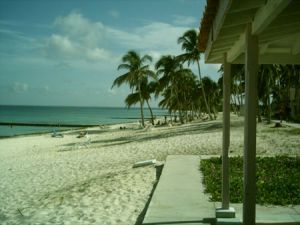


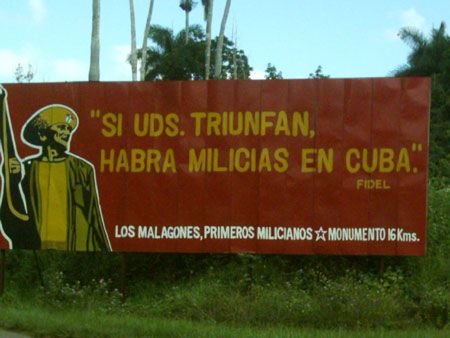
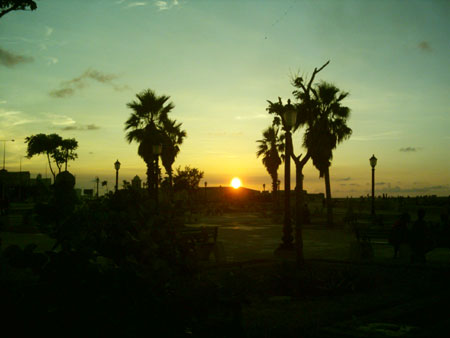
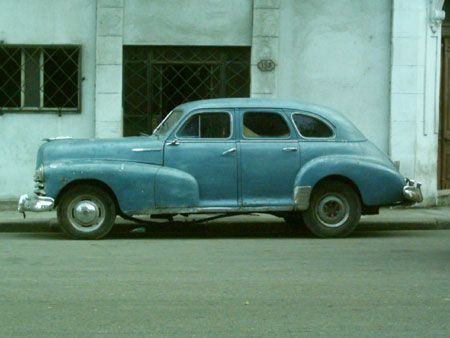

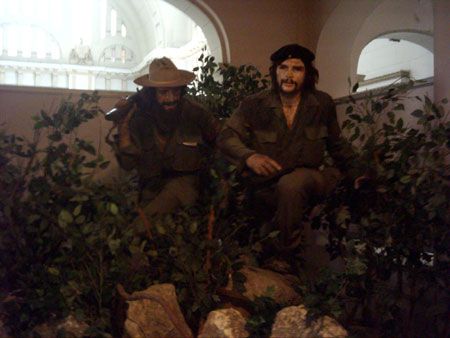
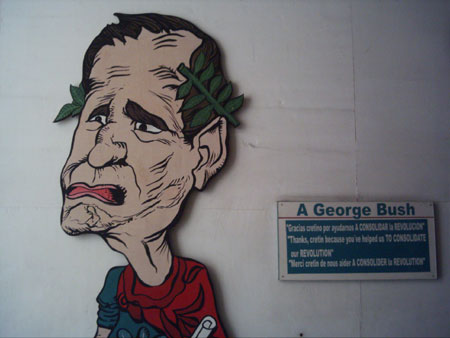
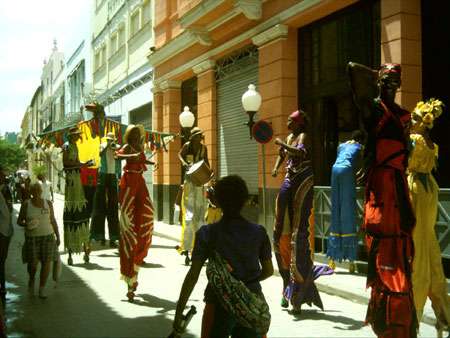
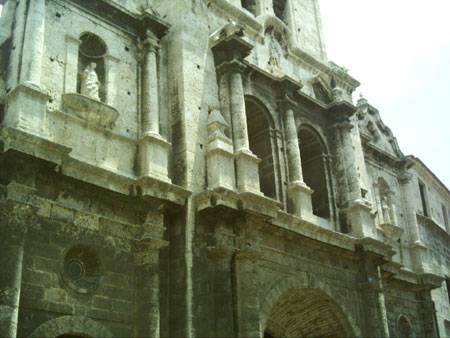
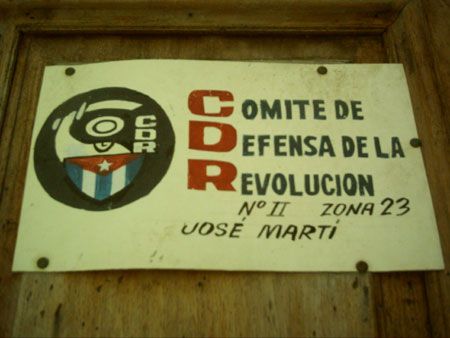
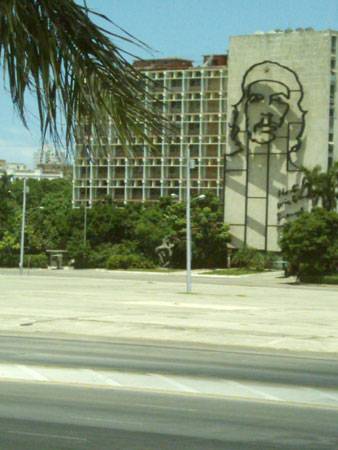
 printable version
printable version

 Digg this
Digg this del.icio.us
del.icio.us Furl
Furl Reddit
Reddit Technorati
Technorati Facebook
Facebook Gab
Gab Twitter
Twitter
View Full Comment Text
save preference
Comments (29 of 29)